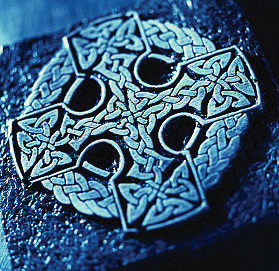What is an Anglican?
Ryan+ Owsley
 When meeting new people and exchanging the initial pleasantries, I often find myself answering the question, “What do you do?” After saying I’m a minister and a lawyer, I usually get two responses back to back: “Well, that’s a weird combination! What kind of minister are you?” After I respond “Anglican,” my new friend usually says: “A what?” How one starts answering this question reveals much about one’s theology. I’d like to explain why that is and why that matters.
When meeting new people and exchanging the initial pleasantries, I often find myself answering the question, “What do you do?” After saying I’m a minister and a lawyer, I usually get two responses back to back: “Well, that’s a weird combination! What kind of minister are you?” After I respond “Anglican,” my new friend usually says: “A what?” How one starts answering this question reveals much about one’s theology. I’d like to explain why that is and why that matters.
I’ve heard some start answering that question by speaking about history: “Well, you see, it all starts with Henry VIII.” I’ve also heard references to the Archbishop of Canterbury: “An Anglican is a member of a church whose governing bishop is recognized by the Archbishop of Canterbury as an Anglican.”
But these answers are non-starters. The Protestant Reformation was beginning in England well before Henry VIII’s decisive break from the papacy. And the Archbishop of Canterbury has and does recognize as Anglicans some who publicly deny the bodily resurrection of Jesus and the truthfulness of the Scriptures. So if an Anglican is a certain type of Christian, and if one can be recognized as an Anglican without being a Christian, something is wrong with appealing to recognition by the Archbishop of Canterbury.
The more straightforward answer is to look at Anglicanism’s key documents. Anglicans, like nearly all Protestant denominations, have a set of documents that define their beliefs and practices. These documents—usually called “formularies”—are the Thirty-Nine Articles of Religion (1571), the 1662 Book of Common Prayer and the Ordinal. The Articles summarize historic catholic (universal) Christian teaching and clearly articulate key reformation doctrines such as the authority of Scripture and justification by grace alone through faith alone. The Articles’ theological framework is then given liturgical expression in The Book of Common Prayer. The prayer book contains the Ordinal, which is the official statement of what Anglicans believe about the ordained offices in the church and their functions.
These documents establish boundaries on what it means to be an Anglican. And most other parts of the Anglican family include these formularies in their founding documents (though there are some exceptions). So a person can’t consistently claim to believe the Articles are true and that Jesus’s body rotted in a grave. Likewise, one can’t sincerely use the prayer book’s liturgy while denying Christ’s substitutionary atonement.
Yet many who seem to have all the Anglican bona fides also deny essentials of the Christian faith. How can that be? In short: in a time when people can’t agree on what it means to be an Anglican, some have substituted a variety of regulatory structures—instead of shared, sound doctrine and piety—as the basis for unity. These regulatory structures—usually called the “instruments of communion”—include recognition by the Archbishop of Canterbury, having a membership card from the Anglican Consultative Council, being under the authority of a bishop invited to the decennial Lambeth Conference or having a bishop under the authority of an archbishop who participates in the Primates’ Meetings. There’s nothing wrong in principle with these structures. But they cannot bear the weight of substitution for a shared understanding of the gospel.
Why should anyone care about these things? Simple: The substitution of regulations for sound doctrine hinders the work of the Great Commission. Healthy regulatory structures help preserve, defend and proclaim the gospel. Unhealthy regulatory structures sap the strength of the governed and distract them from focusing on the mission to focusing on the next regulatory meeting.
What is an Anglican? Though the regulatory structures described above have a place, they should not the be the first thing someone mentions when defining Anglicans. An Anglican is someone who loves Jesus. They’re someone who, wanting to live under Jesus’s lordship, searches the Scriptures to learn how to live that life. They’re someone who prays for the power of the Holy Spirit to prune them with the conviction of sin, then to bring the healing power of the gospel, and to empower them to bear fruit. They’re someone who worships the triune God in a particular, ancient way and invites others to do the same.

Ryan+ Owsley serves the AMiA as the Director of Ecclesiastical Affairs and has served as Associate Pastor of St. Andrew's Church in Little Rock, Arkansas. He graduated magna cum laude from Ouachita Baptist University with a degree in philosophy and ethics. He graduated with honors from the UALR Bowen School of Law, and served for 10 years at the Arkansas Attorney General's Office, including work as the head of the Civil Litigation Division.
Category: Leadership
Tags: Anglicanism, Text










